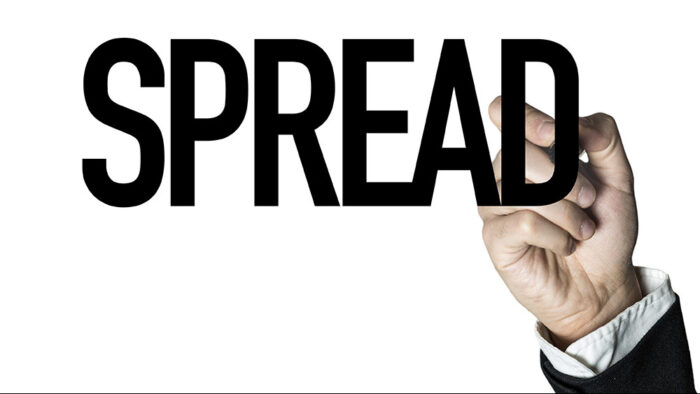Investors are digesting mixed earnings reports while waiting for quarterly reports today from mega-tech giants Alphabet and Microsoft. Stocks are higher, as investors reflect excitement over potential big earnings beats from those companies and the rest of the magnificent tech behemoths. Optimism is also being ignited by the increasing likelihood of a bitcoin ETF gaining regulatory approval, with equities gaining sharply on the news. On the geopolitical and economic data front, tensions are flaring in the Middle East while Purchasing Managers’ Index data for the euro area and the U.S. reflect opposite realities.
U.S. Expands Marginally as Europe Contracts
This morning’s October PMI data depict continued economic growth in the U.S. while the euro area slips further into contraction territory. The U.S. services sector came in at 50.9 while manufacturing increased to the contraction-expansion threshold of 50, above expectations for both categories of 49.8 and 49.5. Both segments improved from September’s 50.1 and 49.8 levels. Orders were mixed as inflationary pressures softened against the backdrop of declining fuel costs this month relative to September. Servicers experienced the third-consecutive month of declining new orders while manufacturing orders rose at the briskest pace in a while. Employment slowed overall as future demand conditions remain unclear, with service providers adding workers at a slower pace and manufacturers trimming headcounts at the margins. Companies didn’t chase margin expansion, however, as they lowered prices where possible in efforts to propel revenues. At this juncture, consumers appear much more price-sensitive than earlier in the cycle.
Europe Contraction Continues
In Europe, conditions worsened. Manufacturing and services slipped to 43 and 47.8, respectively, from last month’s 43.4 and 48.7. The results also came in below projections of 43.7 and 48.7. New orders and employment weighed heavily on figures, while an uptick in services prices failed to boost hopes of the European Central Bank pivoting to a less hawkish inflation stance. In a separate report, the United Kingdom reported losing 82,000 jobs in July. These reports increase the likelihood that the euro area entered a recession during the third quarter of this year.
Tech Optimism Swells Investor Sentiment
Markets are optimistic ahead of a big week for tech earnings, with all major U.S. stock indices higher. The small-cap Russel 2000 is leading with prices rising 1.5% while the Nasdaq Composite, S&P 500 and Dow Jones Industrial indices are up 1%, 0.9% and 0.9%. Sectoral breadth is impressive, with all sectors higher except for energy, which is down 0.2%. Bond yields are climbing, however, followed by a day in which influential hedge funder Bill Ackman commented on closing his bond short, which set in motion a fierce downward move in borrowing costs. The 2- and 10-year Treasuries are giving back some of those gains, however, as they rise 7 and 2 basis points (bps) to 5.12% and 4.87%. Rising Fed tightening expectations alongside lofty yields are supporting the dollar, with its Index up 55 bps to 106.18. The greenback is gaining against the euro, pound sterling, franc, yen and Canadian dollar as European PMI data weigh on the region’s respective currencies. Meanwhile, the Aussie dollar and yuan are up relative to the Federal Reserve’s currency. Oil prices are lower following data depicting a European slump alongside diplomatic moves out of the Middle East that are aiding the supply outlook. WTI crude is down $2.26 per barrel or 2.63% to $83.82.
A Bright View of Manufacturing and Consumer Spending
In the U.S., manufacturers General Motors and 3M provided encouraging earnings results while Coca-Cola’s earnings release depicted consumers being unphased by price increases.
General Motors posted better-than-expected results this morning but canceled its guidance in response to growing uncertainty about the United Auto Workers strike. That uncertainty proved to be well founded. Slightly after the company’s earnings release, the UAW ordered 5,000 more workers to strike at GM’s Arlington, Texas, assembly plant, which is the company’s most profitable facility. In the earnings release, GM said it is losing millions of dollars due to striking workers, but the company still generated an adjusted earnings per share (EPS) of $2.28, beating the analyst consensus expectation of $1.88 and increasing from the EPS of $2.25 in the year-ago quarter. Its revenues of $44.13 billion also exceeded expectations, with analysts anticipating $43.68 billion in revenues. Its North America adjusted earnings, however, dropped 9.5% from a year earlier to $3.53 billion. The decline was offset by earnings from international operations increasing earnings 7% y/y, or $357 million. In addition to pulling its overall guidance, the company also dropped its guidance on electric vehicle sales, citing weaker-than-anticipated demand. GM’s struggles with the UAW aren’t unique, with the union targeting the country’s three largest car companies. Just yesterday, the UAW ordered 6,800 members to strike at the Stellantis Ram pickup truck factory in Sterling Heights, Detroit. Meanwhile, the Anderson Economic Group has estimated that as of October 19, the strikes have cost the auto industry $9.3 billion.
In other earnings releases, both 3M and Coca-Cola reported strong results, driven in large part by price hikes. 3M manufactures a broad array of items, such as computer screens and Scotch tape, said its third quarter adjusted EPS came in at $2.68 per share, above analysts’ estimates of $2.34. Adjusted revenue of $8.02 billion also beat the analyst consensus estimate of $7.98 billion. 3M said demand for its products weakened during the quarter, but its price increases and workforce reduction helped the company increase its earnings and revenues. However, it doesn’t anticipate implementing more price increases because it believes consumers are holding off on big-ticket purchases and reducing discretionary spending due to recession fears. On a non-adjusted basis, the company generated a quarterly loss of $3.74 billion due to a $4.2 billion settlement regarding its Combat Arms earplugs. It also faces litigation regarding toxic “forever chemicals” that have found their way into drinking supplies.
Coca-Cola, furthermore, generated an EPS of $0.74, beating the analyst consensus expectation of $0.69 and its adjusted revenues of $11.91 billion also exceeded the analysts outlook, which was $11.44 billion. The company said its price increases didn’t prevent consumers from buying its beverages, with the unit volume of sales increased 2%. Coca-Cola increased its full year EPS growth guidance from its prior target ranging between 5% and 6% to between 7% and 8%. It expects revenue to increase 10% to 11%. It previously guided for revenue growth ranging between 8% and 9%.
Price Power Likely to Increase Performance Disparity
While inflation has been moderating, input prices for both manufacturers and service providers are significantly higher than during the months of record-low interest rates that occurred alongside of the Covid-19 pandemic. Businesses are therefore struggling with having to pass higher costs to customers or accepting lower margins. Competition, especially in the electric vehicle market, is also creating pressure for certain car manufacturers to lower their prices. While companies like Tesla have had to succumb to pricing pressures, other companies such as Coca-Cola, 3M and Procter & Gamble have succeeded with passing higher costs to consumers. As consumers face declining savings, increased credit-card interest rates and the crunch of higher living costs due to inflation, pricing power is likely to be a key differentiator of business results in the foreseeable future.
Visit Traders’ Academy to Learn More About PMI and Other Economic Indicators.
Disclosure: Interactive Brokers
Information posted on IBKR Campus that is provided by third-parties does NOT constitute a recommendation that you should contract for the services of that third party. Third-party participants who contribute to IBKR Campus are independent of Interactive Brokers and Interactive Brokers does not make any representations or warranties concerning the services offered, their past or future performance, or the accuracy of the information provided by the third party. Past performance is no guarantee of future results.
This material is from IBKR Macroeconomics and is being posted with its permission. The views expressed in this material are solely those of the author and/or IBKR Macroeconomics and Interactive Brokers is not endorsing or recommending any investment or trading discussed in the material. This material is not and should not be construed as an offer to buy or sell any security. It should not be construed as research or investment advice or a recommendation to buy, sell or hold any security or commodity. This material does not and is not intended to take into account the particular financial conditions, investment objectives or requirements of individual customers. Before acting on this material, you should consider whether it is suitable for your particular circumstances and, as necessary, seek professional advice.



















Join The Conversation
If you have a general question, it may already be covered in our FAQs. If you have an account-specific question or concern, please reach out to Client Services.